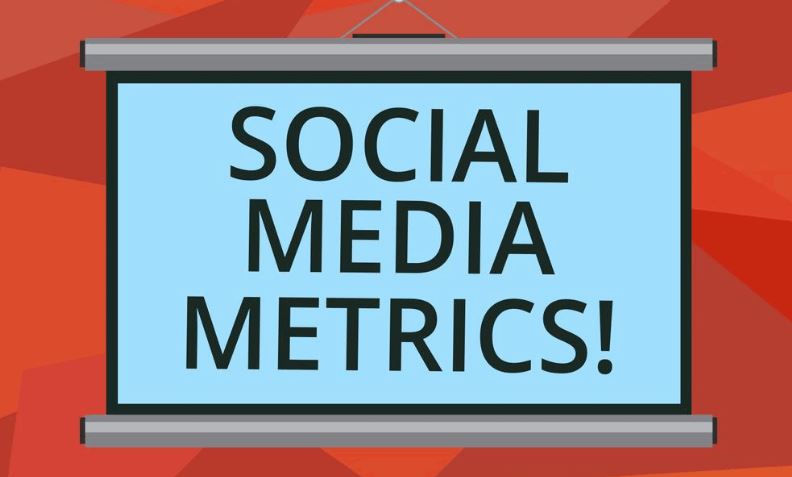Crafting a digital marketing strategy is one thing; making sure it generates the required ROI is another. Tracking is the single most important aspect of implementing a successful digital marketing strategy. But, it’s even more important to track and improve the “right” metrics. In this article, we’ll talk about the most important digital marketing metrics you should be tracking this year. Let’s dive in.
What are Marketing Metrics
A marketing metric is a quantitative measure that helps you understand the effectiveness of your marketing strategy. These include:
- Website traffic
- Conversion rates
- Email open and click-through rate
- And more
In the next few sections, we’ll take a look at the marketing metrics you should be tracking to move in the right direction.
Digital Marketing Metrics You Should Be Tracking

Paid Marketing Metrics
Paid marketing is any form of digital marketing that involves advertisements. It’s also known as pay-per-click (PPC) marketing because advertisers have to pay for every click. The most common examples of this type of marketing are:
- Facebook ads
- Google ads
- Bing ads
Since there’s an initial investment involved in a PPC campaign, advertisers should analyze the right metrics to make sure they’re generating the desired ROI.
Conversion Metrics
Conversion metrics tell you the percentage or number of people that took the desired action after clicking on your ad. The conversion can be anything depending on the goal of your campaign, including:
- Form submission
- A purchase
Return On Ad Spend
The return on ad spend (ROAS) is an advertising metric that calculates your revenue for every invested dollar. The exact ROAS can vary depending on several factors, including:
- Customer acquisition cost
- Cost per lead
- Customer lifetime value
- And more
Keep in mind that the ROAS is different than the return on investment (ROI). In ROI measurement, you consider overall marketing cost. Whereas ROAS only signifies the return on advertising investment.
SEO Metrics

Search engine optimization involves every marketing action that helps a website rank higher on search engines like Google and Bing. Without tracking these metrics, it’d be virtually impossible to know if your SEO strategy is working. Thankfully, there are plenty of tools like Ahrefs, SEMrush, Google Analytics, and more to help you track your SEO metrics.
Search Traffic Metrics
Tracking search traffic metrics will help you understand your visitors better. These metrics include:
The number of visitors: This tells you how many people are visiting your landing page from search engines. A high number of website visits is a good indication that your SEO strategies are working.
Bounce rate: This is the percentage of people that bounce back from your landing page without taking any action. A high bounce rate can be an indication that your content isn’t engaging enough, or that your web page doesn’t load fast enough.
Session duration: A session is the length of time an average visitor spends on your website after landing on it. A high session duration indicates that you’re attracting the right people to your website.
Mobile vs desktop traffic: This tells you the type of device most of your visitors are using to interact with your website.
Keyword Ranking Metrics
Keyword tracking can help you identify which keywords are ranking on search engines and which ones need further optimization. Tools like SEMrush, Google Search Console, and Ahrefs tell you a lot about your ranking keywords.
You May Also Like: Which Social Media Platforms Should I Use for My Business?
Social Media Marketing Metrics

Social media marketing metrics help you identify the best-performing social platforms.
Engagement Metrics
A high engagement rate often leads to more conversions. As a brand, you want your target audience to engage with your content. On social media, engagement is quantified in the form of likes, shares, and comments. Tracking these can help you understand which type of content performs well and which doesn’t.
Conversion Metrics
Engagement is great, but you may want your audience to visit an external link as well. Social media can be a great source of organic traffic. Tracking conversion metrics tells you which of your social content strategies are generating results.
Email Marketing Metrics
Tracking is an important aspect of every email marketing campaign. Email open and click-through rates are two key metrics you should keep an eye on.
Open Rate
The open rate of an email campaign refers to the percentage of recipients that open your email. For instance, an open rate of 10% would mean 10 out of 100 recipients have opened your email. Open rate tracking is important because it tells you the effectiveness of your subject lines. A high open rate is often an indication that your subject line is persuasive enough to get people to click on your email. This can also mean that you’re sending your emails to a highly engaged and loyal list.
Click-through Rate
Click-through rate refers to the percentage of recipients that click on a link within your emails. So, a click-through rate of 10% would mean 10 out of every 100 emails are generating clicks. CTR tracking is important because it lets you gauge the effectiveness of your call to action. A high click-through rate means that your email content is engaging enough to get people to take action. Similarly, there can be two reasons for a low CTR:
- Your content isn’t engaging
- Your CTA isn’t compelling enough
FAQs
What are the 4 key metrics for measuring digital marketing?
The 4 key metrics for measuring digital marketing are conversion metrics, SEO metrics, social media marketing metrics, and email marketing metrics.
What are the 7 key metrics that all digital marketers should measure?
The 7 key metrics that all digital marketers should measure are time on site, bounce rate, cost per lead, return on ad spend, return on investment, keyword rankings, and email open rates.
What are the metrics in digital marketing?
Digital marketing metrics tell you if your strategies are effective or not. Some examples include your conversion rate, website traffic, ROI, and more.
Wrapping Up
Tracking is a core part of every successful digital marketing strategy. Without tracking, it’s virtually impossible to know if you’re moving in the right direction. However, not every digital marketing metric is worth tracking. Making sure you’re investing your resources in analyzing the right metrics is super important. Here’s a quick recap of the metrics you should track and improve for a better ROI:
- Advertising metrics (Conversion rate, return on ad spend)
- SEO metrics (Traffic, bounce rate, session duration, mobile vs desktop)
- Social media metrics (Engagement, conversions)
- Email marketing metrics (Open rate, click-through rate)
You May Also Like:




